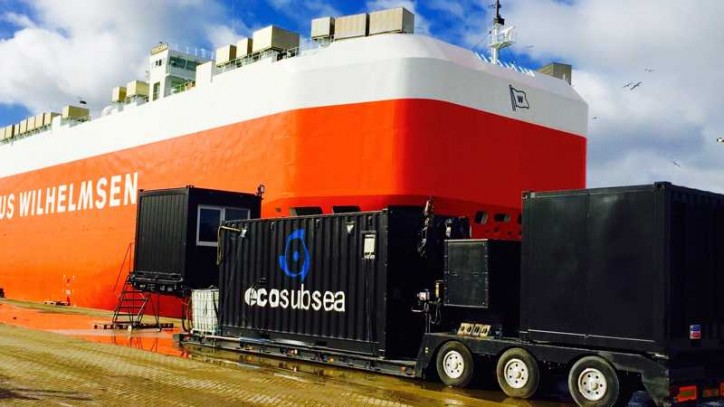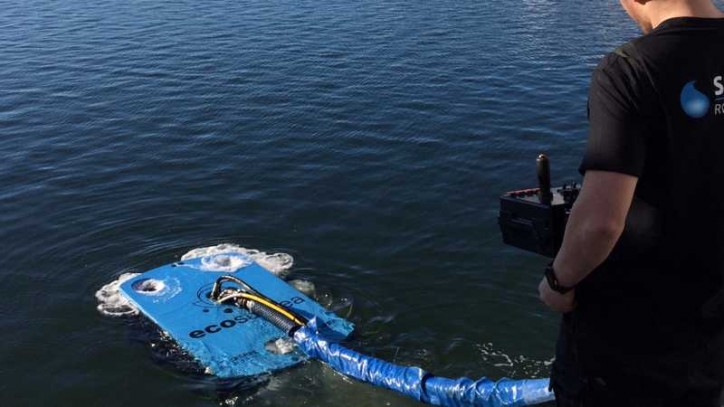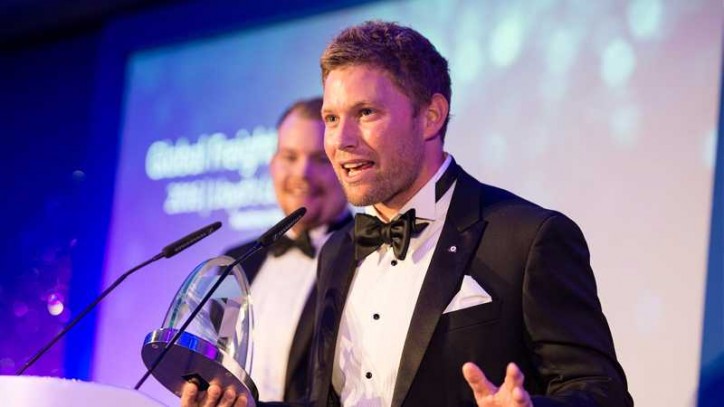ECOsubsea, the 2013 Orcelle Award winner, has a solution to the problem of biofouling, an increasingly pressing issue for shipping companies following the recent ratification of the International Maritime Organization’s Ballast Water Management (BWM) Convention.
The convention is a milestone in the battle to manage the spread of invasive aquatic species, and ECOsubsea CEO Tor Østervold says it’s just a matter of time before the IMO introduces stricter regulations when it comes to biofouling.
“Now that IMO members have ratified the BWM Convention, the next controls, dealing with the spread through biofouling, will come much faster,” he says. “But I think the positive commercial and environmental benefits of reduced fuel consumption and lower air emissions from having a hull free of fouling will be obvious to the industry as a whole.”

ECOsubsea provides a remote-controlled mini-submarine equipped with a unique cleaning and debris-collection technology.
Biofouling is the accumulation of aquatic organisms on a vessel’s hull, and removing it presents a challenge to safety, coatings management and marine pollution.
Today, the cleaning of the hull is mostly carried out by divers using portable brushes, but at many ports it’s hard to get permission to do this for safety reasons, and removing non-native shells creates the risk that live organisms are transferred to the local seabed.
ECOsubsea solves this problem by providing a remote-controlled mini-submarine equipped with a unique cleaning and debris-collection technology. The system allows ship owners to clean their vessels in an environmentally responsible way while they’re in port and conducting cargo operations. Uniquely, it offers a high collection rate for biofouling debris and preserves the hull coating during cleaning.
It also offers improved levels of safety due to the reduced need for divers.

The system allows ship owners to clean their vessels in an environmentally responsible way while they’re in port and conducting cargo operations.
Thanks to the support of WWL and the Orcelle Award, which granted ECOsubsea 10,000 US dollars in support in 2013, the company has been able to develop its products and ideas further to make them commercially viable.
“Winning the Orcelle Award was a fantastic endorsement for us,” Østervold says. “It led to numerous new contacts and put a stamp on the technology, which meant it could be a real solution, not just a marketing idea.”
Since Orcelle, WWL has helped ECOsubsea establish a presence at the Port of Southampton, where it has tested its solution and capture business from operators of liners, RoRo cruise ships and ferry boats making European port calls.
“WWL’s willingness to test our technology and its sustainable initiative of ‘clean and capture’ means our solution to the fouling problem is not just recognised, but actually used,” Østervold says.
To date the company has cleaned more than 60 vessels at the Port of Southampton. Sediments tests taken directly under four berths where ECOsubsea has conducted the cleaning show that heavy metal concentration is lower than the port’s average.
“To have documented that the half of the water is actually improved by using our service, together with its impact on the environmental and financial footprint for ship owners, is a good starting point to grow our business,” Østervold says.
ECOsubsea recently won the Product Innovation Award at the Global Freight Awards 2016 held in London on 3 November.

ECOsubsea recently won the Product Innovation Award at the Global Freight Awards 2016 held in London on 3 November.
Source: 2wglobal